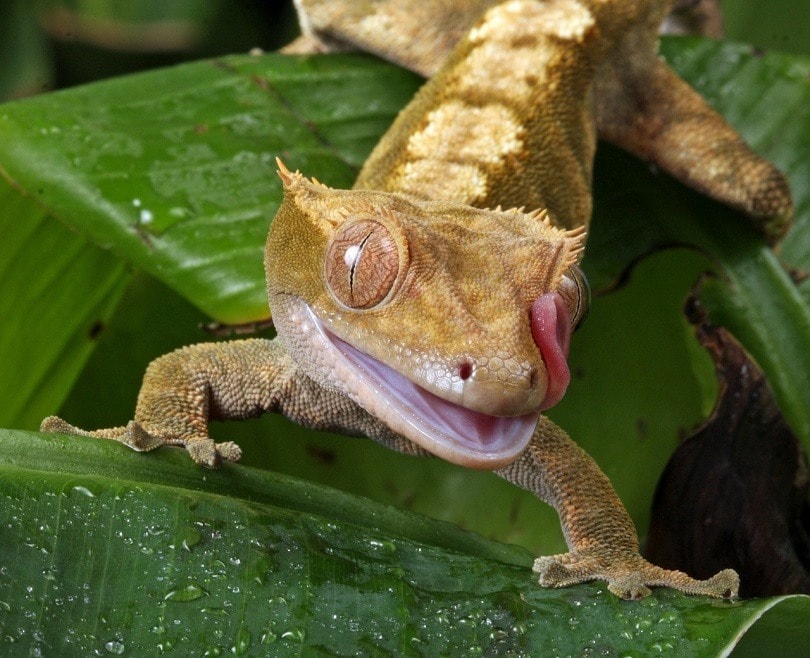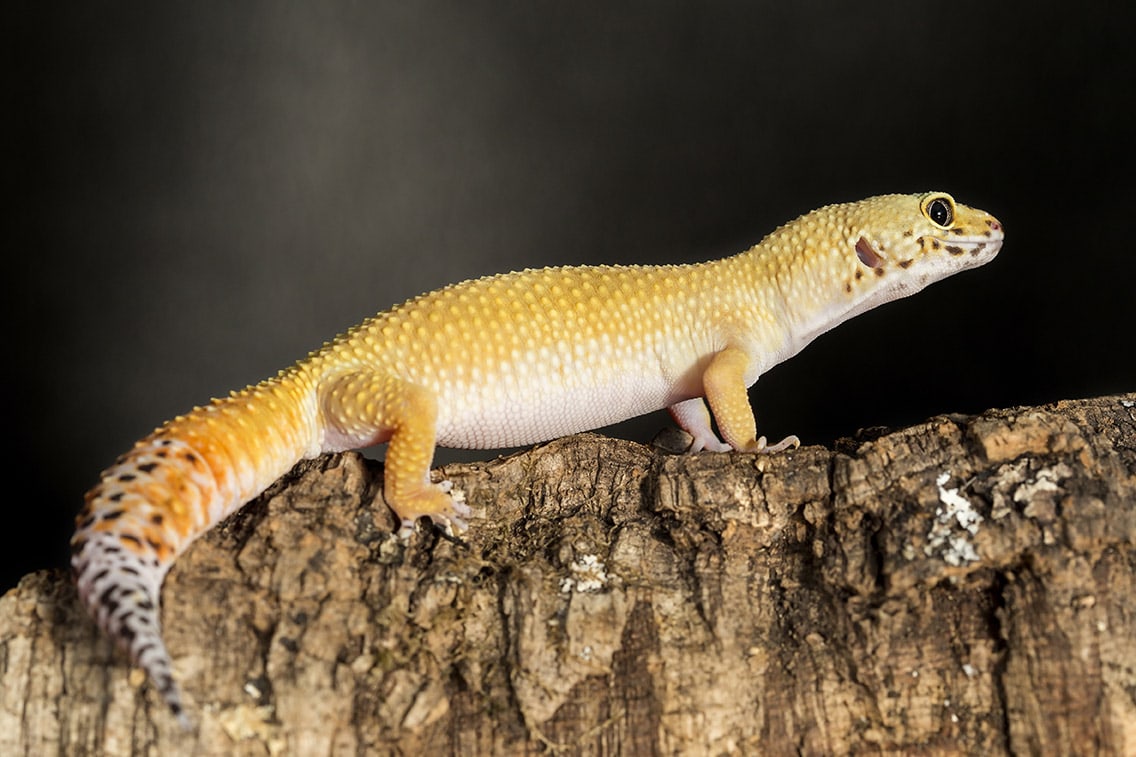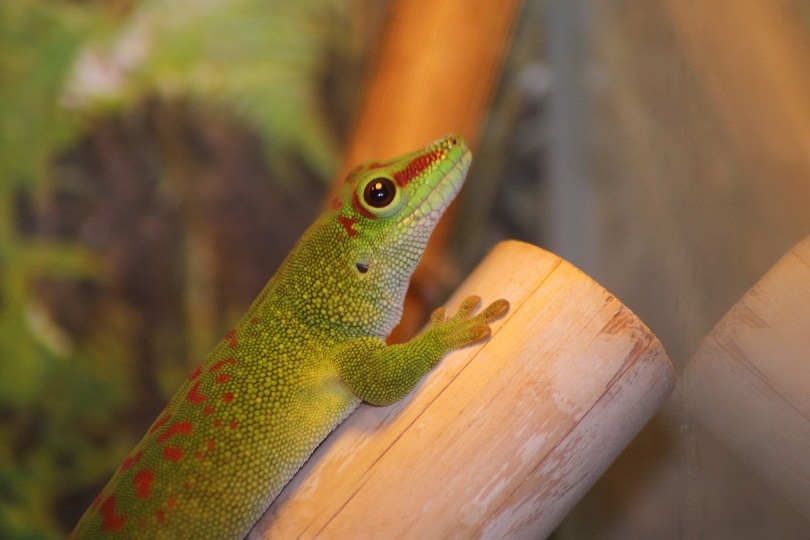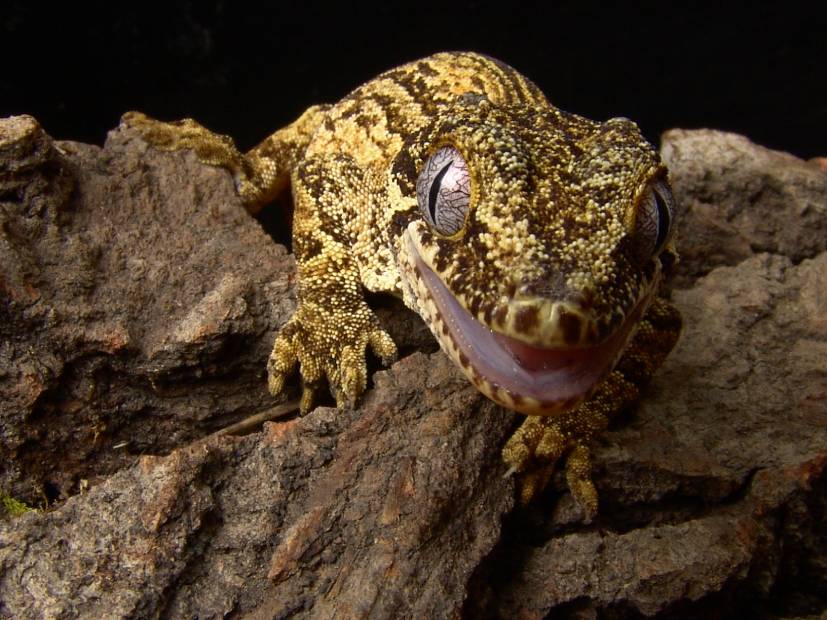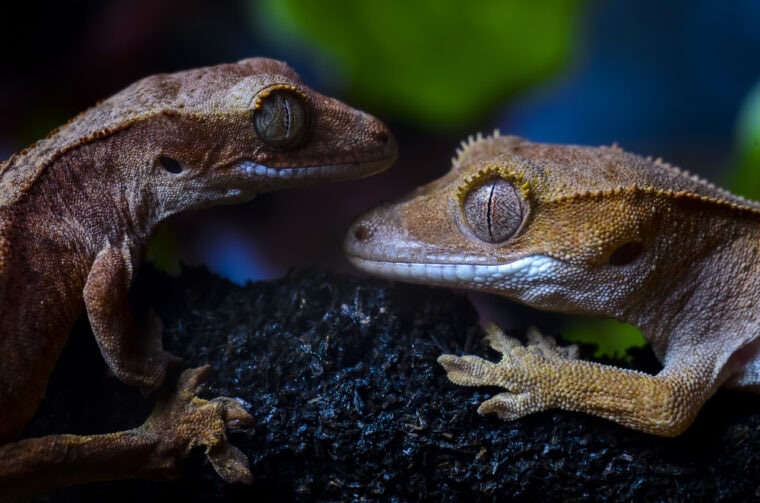
Easily recognized by their “eyelashes” and known for their docile natures, Crested geckos are popular pets for beginner reptile owners. They aren’t high maintenance, though the day/night cycle in their vivarium does need to be managed carefully. Crested geckos are nocturnal and will spend most of the day sleeping, which is perfect for pet owners who spend all day at work.
Understanding that crested geckos are nocturnal is just one part of taking care of them. Managing their day/night cycle with the right temperatures and light levels will ensure that your gecko is happy and healthy.
Are Crested Geckos Active at Night?
If you’re looking for a pet that you can interact with during the day, crested geckos aren’t the best choice. They spend the day sleeping, so their activity is during nighttime hours. They usually rouse from their slumber around dusk, warming up by sitting on a rock that was under the sun (or in the case of a pet, under a heat lamp) and go about their daily activities under the cover of darkness.
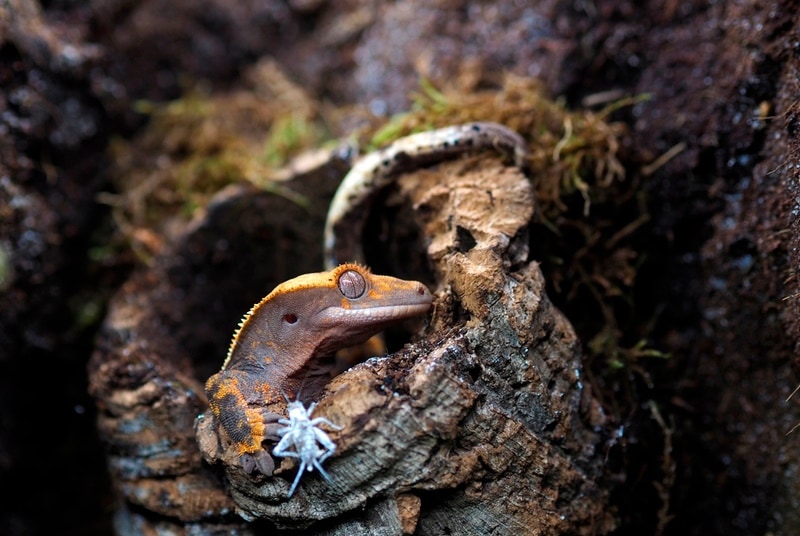
Climate
Many nocturnal animals prefer to be active at night due to the cooler temperatures. Crested Geckos are native to the tropical rainforests in New Caledonia. The temperature during the day is much higher than at night, so they’ll find a safe tree branch to sleep on to save their energy throughout the daylight hours.
Prey Animals
Besides nighttime being cooler, it offers the crested geckos a measure of protection against daylight predators. Since they are prey animals, crested geckos have instinctive habits to help them survive. They can drop their tails to deter predators and can hunt in the dark due to being able to see in low-light conditions.

How to Make a Suitable Day/Night Cycle for Your Crested Gecko
Crested geckos are among the easiest lizards to care for and are often considered beginner friendly. Maintaining their habitat is the most difficult part of keeping geckos as pets. They’re native to temperate environments, and keeping their vivarium as close to natural conditions as possible, including their day/night schedule, will ensure that they stay happy and comfortable.
Temperature
The climate is one of the reasons that crested geckos are primarily nocturnal. Adjusting the temperature of their vivarium accordingly can help mimic a natural day/night cycle.
The preferred temperature range for an adult pet crested geckos is 24–28°C (75–82°F); however, they have shown to adapt and perform optimally at 32°C (89.6 °F) but don’t enjoy temperatures higher than that. Therefore, their basking spot should not exceed 32°C (89.6 °F). Likewise, their nighttime temperature should not drop to below 20°C (68 °F), as this too is quite unfavorable for them.

Lighting
Remember that crested geckos are most active at night, including the hours of dawn and dusk. You’ll need to slowly adjust the light levels in their vivarium to mimic a natural day and night cycle.
By slowly lowering the light level and raising it in the morning, you’ll be helping their activity levels change accordingly. You’ll prompt them to prepare for a night spent exploring their cage and for going to bed in the morning.
Try to mimic a natural day/night cycle as closely as possible. Adjust the lighting every 12 hours to give your crested geckos plenty of time to sleep and be active.
Quiet
Trying to sleep somewhere noisy can be frustrating, and geckos are prey animals, which means disturbances are even less welcome, particularly during the day when they’re sleeping. Keep your vivarium somewhere quiet where your gecko can get plenty of rest despite any activity in your house.
It can be tempting to leave the vivarium in your bedroom if you have the space. However, you also need to consider your gecko’s activity level at night. While your room will likely be dark enough when you’re trying to sleep, your gecko may disturb your own sleep with the noise that they make during the night.
Put their vivarium somewhere that isn’t a main room and that enables you to adjust the lighting to suit their sleeping habits and avoid disturbances.

Should You Leave Your Crested Gecko Alone During the Day?
When you’re awake during the day, you’ll likely want to spend time with your pet. However, crested geckos aren’t active at the same time that we typically are. In the middle of the day, they’ll be trying to sleep.
Unless you’re interacting with them during the early morning or late evening hours, it’s best to leave them alone during the daytime. This way, they can maintain a sleeping schedule that suits their needs.
Also, crested geckos don’t have eyelids, so they sleep with their eyes open. They might look like they’re awake, but unless they’re moving around, it’s best to leave them alone.

Do Crested Geckos Need Lights at Night?
Crested geckos need both light and dark times because of their nocturnal habits, but they don’t need a bright light left on all night. Their eyesight is more than strong enough in limited lighting to support their activities.
Dim the lights slowly during the evening to help their bodies adjust to the approaching nighttime hours. Your crested gecko wouldn’t necessarily need complete darkness, as there is rarely pitch blackness in the rainforests that they’re native to. However, you do need to make sure the nighttime hours in their vivarium have a much lower light level than the daytime and twilight hours.
Conclusion
Knowing what to feed your crested gecko is only a small part of keeping one; you also have to consider their sleeping habits. Crested Geckos are nocturnal and will spend most of the day sleeping. Besides adjusting the lighting and temperature in their vivarium to mimic natural day/night cycles, you should make sure the vivarium is in a quiet place during the day so your sleeping pet isn’t disturbed.
Featured Image Credit: Sefa Kaya, Shutterstock



